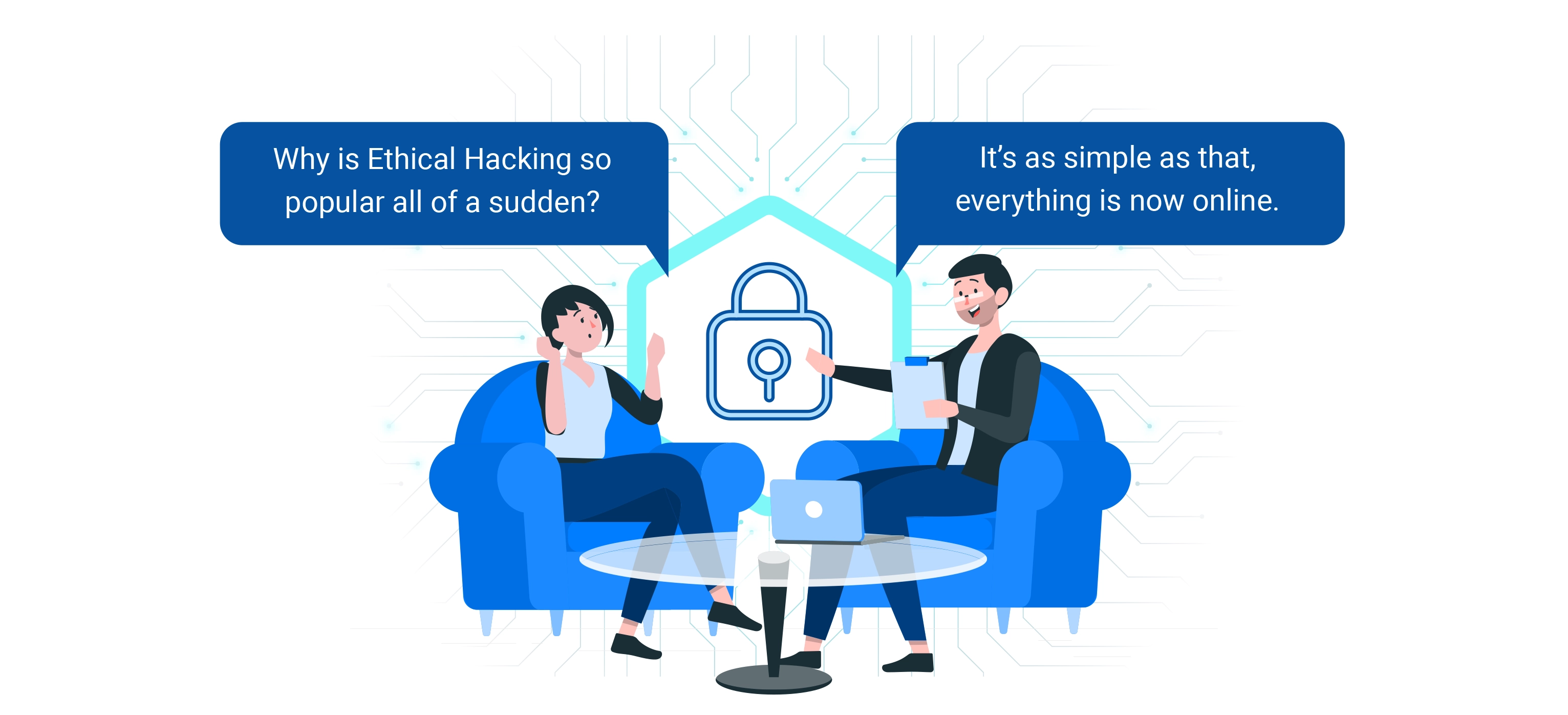 Satendra K
Dec 17, 2024
Satendra K
Dec 17, 2024

Ethical hacking, also known as penetration testing, is not the same as hacking into a computer system. Hacking is stealing data or causing damage. But ethical hacking is the legal access of computer systems by cybersecurity experts. They find security flaws and then fix those vulnerabilities before an actual hacker takes advantage of them. Here are some things you need to know about how ethical hacking works.
Ethical hacking is testing a computer system, network, or application to find vulnerabilities in security that malicious hackers can exploit. Ethical hackers use the same tools and techniques as malicious hackers, but they do so with permission from the system owner. Ethical hacking intends to help organizations improve their security posture by finding and fixing vulnerabilities. An ethical hacker needs to be highly skilled in order to do this. Only practice and experience will help in improving one's ethical hacking skills.
Ethical Hacking is performed by Ethical Hackers who have gained skills in it. Ethical Hackers use their skills to improve security by finding and fixing weaknesses in systems before malicious hackers can exploit them. An ethical hacker must possess an excellent knowledge of information technology, programming, networks, operating systems, software applications, and databases.
Often these skills are obtained through formal education. Ethical hackers have advanced knowledge about what information should be kept confidential and how to limit access to that information to prevent unauthorized access from outside sources. A career in ethical hacking requires you to spend a lot of time learning various aspects of cybersecurity.
There are various hacking techniques that an ethical hacker should be familiar with in order to excel in their work. They should be able to identify different hacking techniques to ensure computer security.
In computer security, there are two types of hackers: white hat and black hat. White hat hackers are ethical hackers who use their skills to find vulnerabilities in systems and help organizations fix them. Black hat hackers do the opposite and use their skills for malicious purposes, such as stealing data or breaking into systems.
As a result, IT professionals must know how to identify these hacking techniques. Some routine methods include:
All of these methods can put sensitive information at risk. It is necessary to understand various information security risks in order to protect your data against unauthorized access.
Read Also: Top Cyber Security Certifications
It's important to first understand some basics about information security risks. Information security risks are of three kinds: confidentiality, integrity, and availability. Confidentiality risks deal with unauthorized access to data, and integrity risks deal with unauthorized changes to the data. Availability risks deal with denial of service attacks or data loss.
Ethical hackers use these three criteria to find vulnerabilities in systems that could lead to a breach. They do this by using software such as vulnerability scanners and penetration testing tools that identify weaknesses in the system. Malicious hackers use this to gain unauthorized access to your data.
Read Also: Top Cybersecurity Skills
A penetration test, also known as a pen test, is an authorized simulated attack on a computer performed to evaluate its security. The test identifies both weaknesses (also referred to as vulnerabilities), including the potential for unauthorized parties to gain access to the system, and strengths, enabling a better understanding of the system's security posture.
The process involves finding ways to circumvent security mechanisms without being detected or creating situations that are detectable by non-intrusive means. Penetration tests verify whether the security system’s design can counter cyber threats, provide constructive feedback about how control procedures work, and validate if those appropriate procedures are in place to act when a problem arises. The best way for an organization to protect itself from a cybersecurity attack is by hiring an ethical hacker on retainer so they can regularly scan their network for vulnerabilities that may arise over time. There is an increasing demand for ethical hackers nowadays because of the rise in cybercrimes.
Read Also: Highest Paying Cyber Security Jobs
Ethical hacking is a rewarding career choice for those who like computers and wish to help to make the internet a safe place. With ethical hacking, you can use your skills to pentest systems and find vulnerabilities before hackers do. It allows organizations to fix these vulnerabilities.
If you're interested in becoming an ethical hacker, there are a few things you must know.
Do you want to upgrade to CEH v13 AI?
Get Edoxi’s CEHv13 AI Training and become an Upgraded Certified Ethical Hacker!
Read Also: How to Become a Certified Ethical Hacker?
As an ethical hacker, you are responsible for using your hacking skills for good instead of evil. You use your powers to find weaknesses in systems and help the owners fix them before the bad guys can exploit them. In many ways, you are like a superhero, using your skills to make the world a safer place. The following are the roles and responsibilities of an ethical hacker:
Read Also: Cyber Security Job Roles and Responsibilities
Hacking ethically refers to regaining access to a computer system, application, or data through authorized means. An ethical hack involves replicating the strategies and actions of malicious attackers. Being an ethical hacker is no easy task. It takes a lot of effort, and you keeping up with new trends and tools is not at all an easy task. But if you have a passion for it, go for it. It can give you job satisfaction as well as reward you financially

Chief Technology Officer & Cyber Security Expert Trainer
Satendra Singh Khari is a renowned cybersecurity expert and the Chief Technology Officer at Edoxi, where he leads the CEH v13 AI program. With over 12 years of experience, he has trained more than 10,000 professionals and earned recognition in the Circle of Excellence for 2023 and 2024. Mr. Khari holds multiple industry certifications, including CISSP, CISM, CEH, CPENT, and CREST, which showcase his expertise in vulnerability assessment, penetration testing, and incident handling.
His practical insights, gained during his tenure as Head of Information Security in Malaysia, enhance the learning experience by providing students with essential technical skills and a clear path to career advancement. Recognized as a leader in his field, he has received the Internet 2.0 Outstanding Leadership Award for three consecutive years (2022-2024), reflecting his dedication to empowering the next generation of cybersecurity professionals.